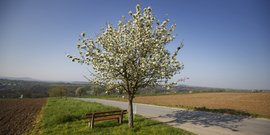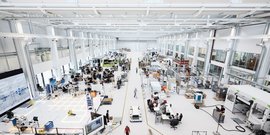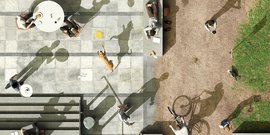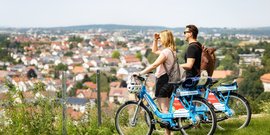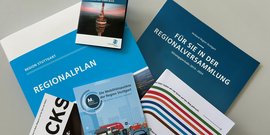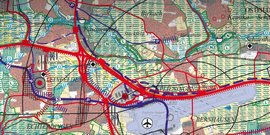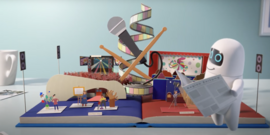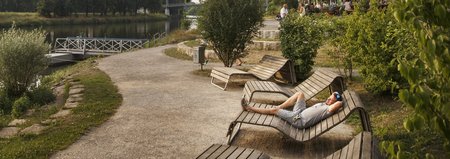Regional innovations in IBA’27-projects
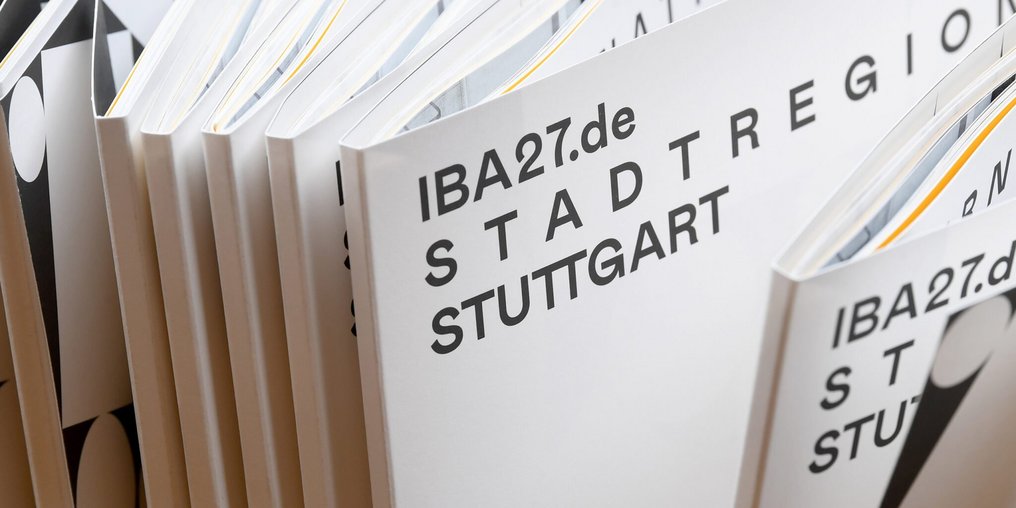
In order to achieve the European roadmap of climate neutrality by 2050, the construction sector must also reduce its emissions to zero over the next two decades. Far-reaching and rapid measures are urgently needed - especially in new construction and building renovations. On the one hand, the production of climate-damaging building materials such as concrete must be reduced and replaced with recycled building materials or renewable, ecological materials. On the other hand, it is important to support "circular construction" and to reuse or recycle building materials that have already been used.
The IBA'27 GmbH and the Verband Region Stuttgart are therefore looking for forward-looking, transferable prototypes, concepts and typologies with the co-financing program that rethink "building" and in at least one of the following fields of action
- Use of new building technologies and materials (e.g. recycling of building materials, use of renewable raw materials as building materials, etc.) or
- Circular economy, i.e. the reuse and recovery of building materials
implement. We are looking for bold plans, products and processes for buildings that can adapt to future neighborhood developments and people's needs, as well as for products that provide sustainable, economic and innovative impetus in buildings.
"Transformation of the Klett site" - Stuttgart
The "Transformation of the Klett Areal" project is a model project for the sustainable and future-proof transformation of the inner-city Klett Areal site. Klett-Haus Stuttgart Gründungsgesellschaft mbH is receiving 240,421 euros in funding. The project aims to test the reuse of used building materials in the form of re-use bricks and the use of hemp limestone bricks and to establish this CO2-saving construction method for perimeter block development and existing buildings. The focus is on the implementation of three four-storey extensions and a new three-storey building made of used solid bricks. The project combines economic, ecological and social aspects. The traditional cityscape of the "backyard brick architecture" of Stuttgart's west is preserved through the combination of traditional materials and new construction techniques.
"Living together in the flower garden" - Backnang
The "Zusammenleben im Blütengarten" construction project by investor Ms. Hafner-Pinnel is being funded with around 240,000 euros . The project focuses on the use of renewable raw materials in the construction of multi-storey residential buildings with housing units for thirty-five to forty people on a 3,200m² site of a former nursery in Backnang The project is being developed according to the principle of "simple construction" and is based on a simple, cost-effective and sustainable construction method. It is based on the requirements of social housing. Straw and clay exterior walls made from regional materials, wooden beam-clay brick composite ceilings, the use of clay panels and a floor structure that can be separated by type are used. The aim of the project is to show that the economic implementation of sustainable and resource-conserving building approaches is also possible in rental apartment construction.
The Brenzkirche - Back to the future
The Brenzkirche is a historical monument in Stuttgart and a testimony to the varied architectural history of the Weissenhof and Kochenhof housing estate. The preservation of the listed building is to be ensured by means of renovation measures. The Verband Region Stuttgart is co-financing the installation of new façade cladding on the outside and new wall and ceiling cladding in the sacred space. A lightweight construction made of stabilized aluminium foam is used here as a resource-saving and particularly durable alternative. The total costs of the project amount to 353,508 euros, of which 176,754 euros are subsidies.
"Pioneer living in the NQ" - Wendlingen
The "Pionierwohnen im NQ" project is being implemented as a pilot project on the Neckarspinnerei Wendlingen site. The aim is to establish interim use as an invigorating element in urban development and at the same time to test innovative approaches to building with renewable materials. Adapter e.V. and HOS Projektentwicklung GmbH are receiving 176,000 euros in funding for the pilot project, which temporarily converts listed commercial properties into living space. Adapter e. V., a spin-off from the Faculty of Architecture at the University of Stuttgart, has developed the modular interior fit-out system "endo", which makes it possible to convert commercial space into living space quickly and efficiently. The system is based on wooden panels that can be flexibly combined to create different living and usage units. A particular focus here is on the reusability of the materials.
"Life in the suburbs'27" - Schorndorf
The RemstalLeben eG housing cooperative is being supported with 956,407 euros for the realization of the first five-storey straw bale house of building class 4 in southern Germany. The aim of the project is to realize a multi-generational housing project on a former farm site that is characterized by innovative construction methods and a strong sense of community. For "Leben in der Vorstadt'27", an innovative wood-straw-clay module is being used for the wall structure, which is being further developed and optimized in terms of its fire protection capability. The aim is not only to obtain planning permission for the higher building class, but also to make straw construction more accessible and quicker to implement for similar projects.
The most important facts in brief
- Eligible applicants are cities, municipalities and districts in the Stuttgart Region, municipal enterprises or public enterprises, special-purpose associations and private sector companies (including planning offices, architects, engineers and construction companies) that wish to implement corresponding individual or joint projects in the Stuttgart Region.
- The functional connection to an IBA'27 project is a prerequisite for project submission, i.e. the project proposal must have qualified as an IBA'27 project.
- Implementation of the measure must be ensured by 2027.
- Only the additional costs incurred by through the use of innovative, sustainable and needs-based solutions will be co-financed with a maximum of 50%.
To the overview of the projects and programs of the Verband Region Stuttgart





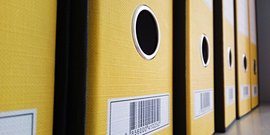
![[Translate to English:] S-Bahn](/fileadmin/_processed_/3/d/csm_058_-_S-Bahn_Stuttgart_ho___ehengleicher_Einstieg-1-rwilling_ce82cb0b0e.jpg)
